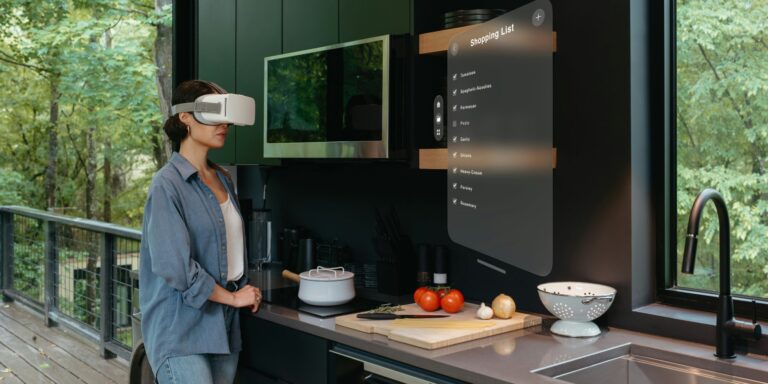As of August 2, 2025, more than half of prospective homebuyers now prioritize listings with virtual reality tours and AI-powered valuation tools. Recent survey data indicate that VR walkthroughs and interactive neighborhood scouting are increasingly influential in buyer decisions, especially on platforms like Realtors.com.
A growing share of buyers—over 39% by mid‑2025—report using AI tools as part of their homebuying process. These tools are most often employed for virtual property tours, estimating monthly payments, and checking property values. AI is also used to search for homes, compare lenders, visualize renovations, and assess affordability.
Demand for virtual reality goes beyond novelty. Data suggests that more than 50% of adults have experienced a virtual tour, with 67% expressing a preference for listings that include them. Properties with virtual tours receive substantially higher engagement: listings with VR attract nearly 90% more views, and buyers are twice as likely to request an in-person showing. Some surveys report that homes featuring VR tours sell up to 9% faster and at premium prices, with offers sometimes made based on a virtual showing alone.
AI-infused valuation tools are another rising star. By combining real-time market trends, local neighborhood data, and historical comparables, AI enables instant price estimates with increasing accuracy. These tools help buyers avoid overpaying and assist sellers in setting competitive listing prices. Integrated within property search platforms, they help customize recommendations based on both buyer preference and financial capability.
Meanwhile, blockchain-based platforms are gaining traction for rental and purchase agreements. These systems automate contract execution, secure payment flows, and provide immutable records—reducing dependence on intermediaries and minimizing fraud risk. Smart contracts powered by blockchain facilitate secure digital signing and payment automation, offering greater transparency and efficiency in residential transactions. In smart-home contexts, blockchain can also enable decentralized automation across lighting, security, and other connected systems, improving data privacy and interoperability.
At the same time, sustainability and smart‑home features are increasingly influencing homebuying preferences. Eco‑conscious buyers are favoring homes equipped with energy‑efficient HVAC systems, solar panels, smart thermostats, and integrated voice‑controlled devices. These features meet both environmental goals and tech expectations, enhancing property appeal across demographics.
Taken together, the survey trends and technology advances reveal a homebuying process increasingly driven by immersive visuals, intelligent estimations, and secure digital transactions. Virtual tours offer unparalleled convenience and drive higher buyer engagement. AI valuation tools bring transparency and confidence to pricing decisions. Blockchain platforms streamline agreements while safeguarding trust. Smart-home features provide energy savings and automation—attributes now seen as essential rather than optional.
This convergence reflects a digital transformation in residential real estate, where technology is reshaping how homes are discovered, evaluated, and purchased. The role of realtors continues to evolve; while the human touch remains vital, agents are now expected to leverage VR, AI, and secure platforms to meet tech‑savvy buyer expectations and compete in a rapidly modernizing market.
